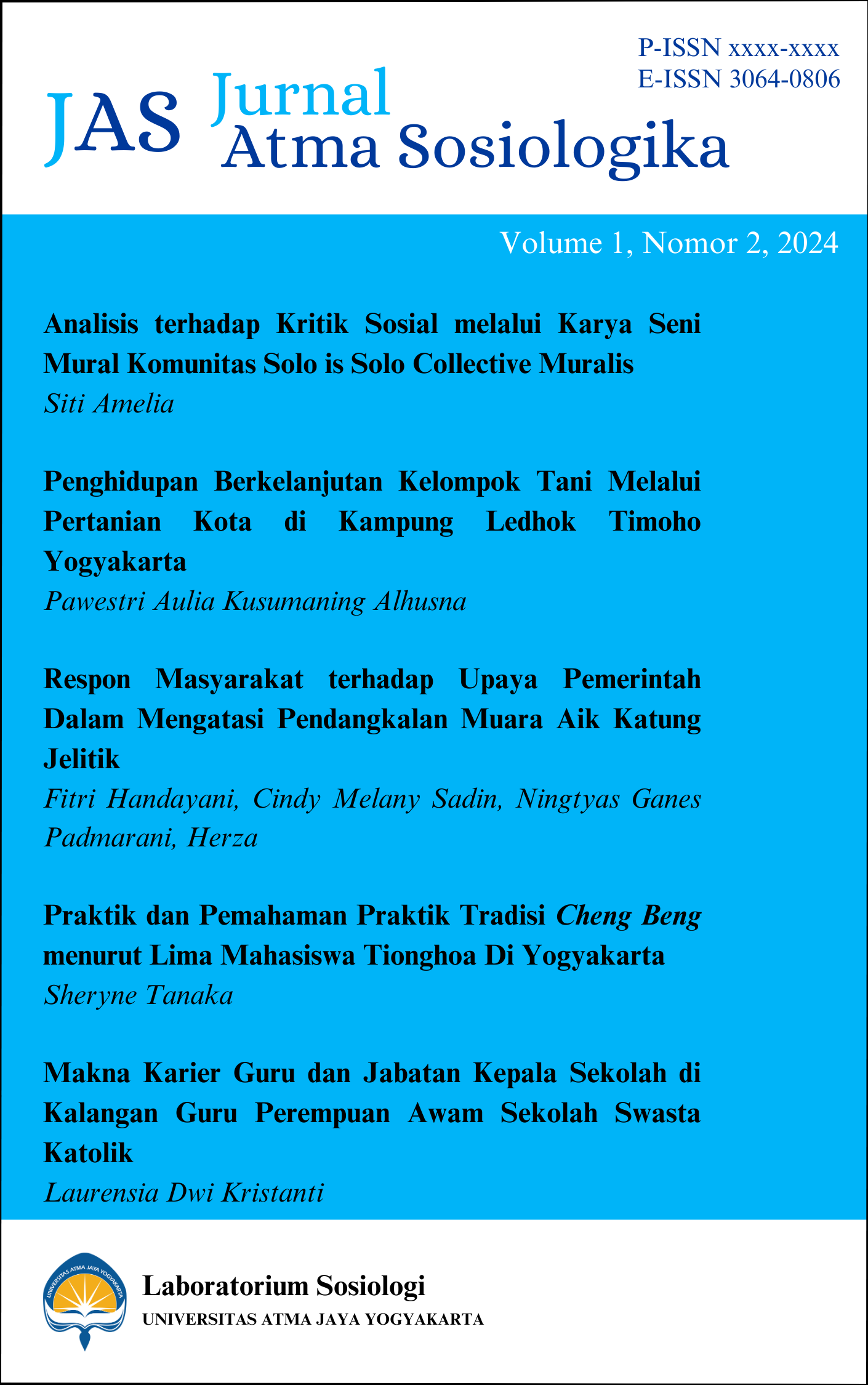Practice and Understanding of Cheng Beng Tradition Practices According to Five Chinese Students in Yogyakarta
Keywords:
Chinese Students, Cheng Beng Tradition, Social Construction TheoryAbstract
This writing was carried out with the aim of investigating the understanding of Chinese students in Yogyakarta regarding the Cheng Beng tradition. This thesis adopts a qualitative approach and applies Social Construction Theory, with an emphasis on the concepts of externalization, internalization and objectification as the main analytical framework. Through a series of in-depth interviews with Chinese students who celebrate Cheng Beng, data was obtained to describe their understanding of this tradition. The results of this paper show that students' understanding of Cheng Beng is not only limited to the religious dimension, but also involves historical, cultural and family values aspects. The formation of the Cheng Beng incident in the student context was influenced by a number of factors, both internal, such as personal beliefs, and external, such as social interactions and environmental influences. This thesis contributes to a deeper understanding of the significance of Cheng Beng in the lives of Chinese students in Yogyakarta, which in turn broadens perspectives regarding the interpretation and preservation of traditions in a society that continues to transform towards a more modern direction.




